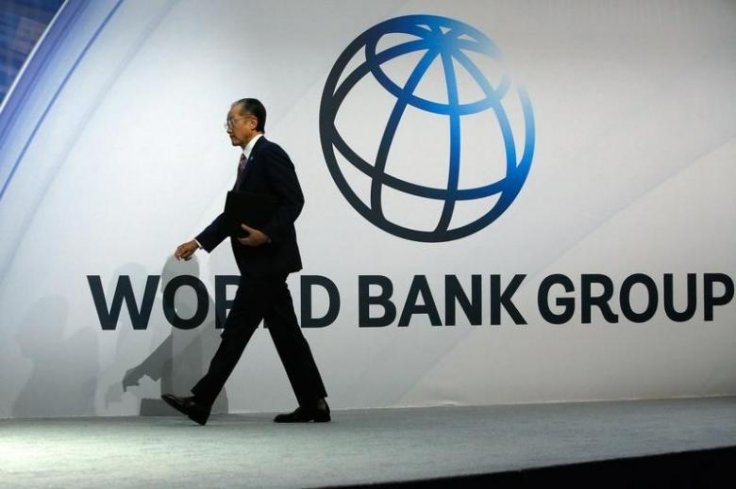The Russian invasion of Ukraine has worsened the prolonged impact of the COVID-19 pandemic on the global economy and growth will slow down further, the World Bank said. The world is entering a protracted period of feeble growth and elevated inflation, the Bank added.
The World Bank also warned that the global economy is likely to face the risk of 'stagflation', which happens when high inflation is accompanied with low growth. This scenario will invariably push many countries into recession, the Bank warned.
Global global growth forecast slashed to 2.9%
"The war in Ukraine, lockdowns in China, supply-chain disruptions, and the risk of stagflation are hammering growth. For many countries, recession will be hard to avoid ... Markets look forward, so it is urgent to encourage production and avoid trade restrictions. Changes in fiscal, monetary, climate and debt policy are needed to counter capital misallocation and inequality," World Bank President David Malpass said.

The World Bank also slashed its forecast for global growth this year to 2.9 percent, which is remarkably lower than the 4.1 percent growth it forecast in January. The Bank also served up more pessimistic news, saying global growth will not rebound next year, and the global economy will post only 3 percent growth in 2023.
As a result of the damage from the pandemic and the war, the level of per capita income in developing economies this year will be nearly 5 percent below its pre-pandemic trend, the Bank added.
The Bank's gloomy outlook is based on the persistence of high energy and food prices, combined with higher interest rates around the world.
Significant Downside Risks
"The global outlook faces significant downside risks, including intensifying geopolitical tensions, an extended period of stagflation reminiscent of the 1970s, widespread financial stress caused by rising borrowing costs, and worsening food insecurity," the report further added.
The World Bank also lowered the rate of economic growth in the United States. It said it downgraded 2022 growth to 2.6 percent from 3.8 percent projected earlier.

The World Bank also said if geopolitical tensions worsen, global growth will become weaker.
"The current juncture resembles the 1970s in three key aspects: persistent supply-side disturbances fueling inflation, preceded by a protracted period of highly accommodative monetary policy in major advanced economies, prospects for weakening growth, and vulnerabilities that emerging market and developing economies face with respect to the monetary policy tightening that will be needed to rein in inflation," the World Bank report said.








